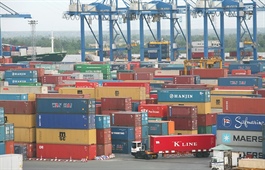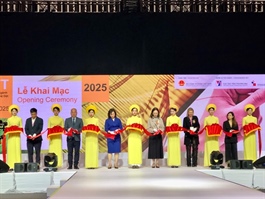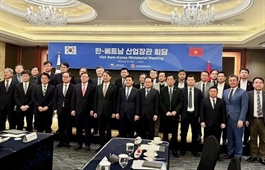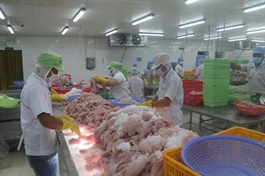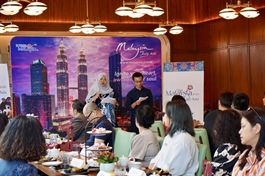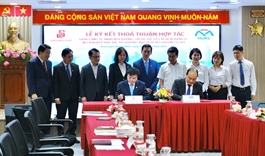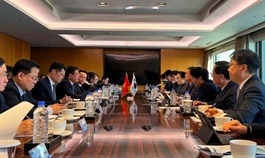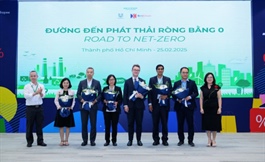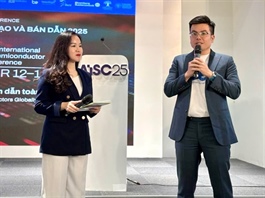VN mulls merging laws, streamlining export mechanisms
VN mulls merging laws, streamlining export mechanisms
Export markets, such as South Korea and Japan, have their own regulations and do not ask for the conformity certification mandated by the Vietnamese government, leaving local businesses with extra costs and time wasted on paperwork.
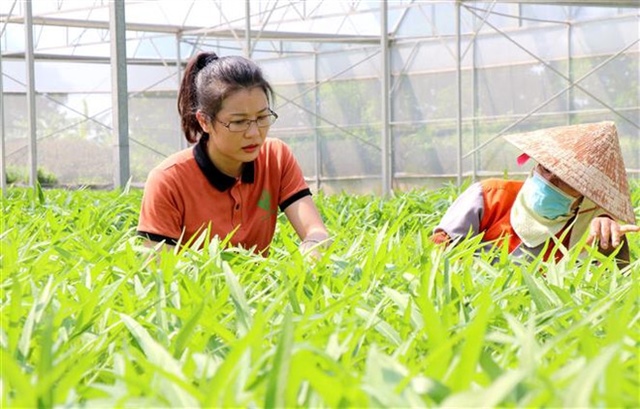 |
Recent proposals to amend key regulatory frameworks have been put forward to address shortcomings in Việt Nam's Law on Standards and Technical Regulations and the Law on Product Quality.
In a recent development, the Hanoi Association of Science and Technology and the Vietnam Association of Science and Technology have submitted several written recommendations to the government.
Their proposals include merging the Law on Standards and Technical Regulations with the Law on Product Quality into a single, updated legal framework, removing the requirement for conformity certification. In the event a merger is not adopted, the two laws should introduce supplementary penalties and clearer guidelines for drafting sector-specific legal documents.
Economists and researchers suggest that technical solutions—such as barcodes or electronic labels—should be encouraged rather than mandated and that technical criteria for export goods should be aligned with the requirements of importing countries.
Outdated
Việt Nam's current legal framework has faced significant challenges that necessitate urgent reform. After more than ten years in operation, these two laws have demonstrated numerous difficulties that impede business activities, said economists and industry insiders.
For instance, the requirement for conformity certification under Clause 48 of the Law on Standards and Technical Regulations imposes a significant administrative and financial burden on businesses that already adhere to national technical standards and assume responsibility for product quality. This process not only incurs additional costs—up to VNĐ1 billion per year for some companies—but also causes delays that undermine their competitiveness in international markets.
In addition, export markets, such as South Korea and Japan, have their own product regulations and do not ask for the conformity certification mandated by the Vietnamese government, leaving local businesses with extra costs and time spent on paperwork.
These concerns have been echoed by industry leaders, who offered insights into the practical challenges and potential impacts of the current regulations.
Vice-Chairman of the Vietnam Association of Science and Technology Enterprises, Nguyễn Hồng Phong, who is also the CEO of an agricultural company, explained that the conformity certification process complicated operations for companies exporting fertilisers.
The Vice-Chairman of the Vietnam Fertiliser Association, Nguyễn Trí Ngọc, said the conformity certifications have little use in importing countries, meaning Vietnamese products can still be denied if they fail to meet buyers' standards.
Deputy General Director of Supe Phot Phat and Lam Thao Chemicals, Trần Đại Nghĩa, said the national technical regulations already represent the highest standard available businesses must follow, making the compulsory conformity largely redundant.
The Vice-Chair of the Vietnam Veterinary Association and the Association for the Production and Business of Veterinary Drugs, Nguyễn Thị Hương, said Vietnamese drug manufacturers have been exporting to more than 40 countries without the need for a conformity certificate.
Deputy Director of External Relations at Canon Vietnam Ltd Đào Thị Thu Huyền, said export markets—such as Japan, South Korea, Europe and the US—do not require conformity certification, barcode registration, origin codes or electronic labels, whereas these requirements have been imposed in Việt Nam.
The Deputy Director of the Hà Nội Department of Agriculture and Rural Development, Tạ Văn Tường, said while eliminating the conformity certification requirement is necessary, it should be accompanied by stricter penalties for non-compliance.
He advised producers to self-declare product quality in accordance with national standards and be held accountable if discrepancies arise, with regulators imposing sanctions based on these declarations.
- 08:48 27/02/2025



